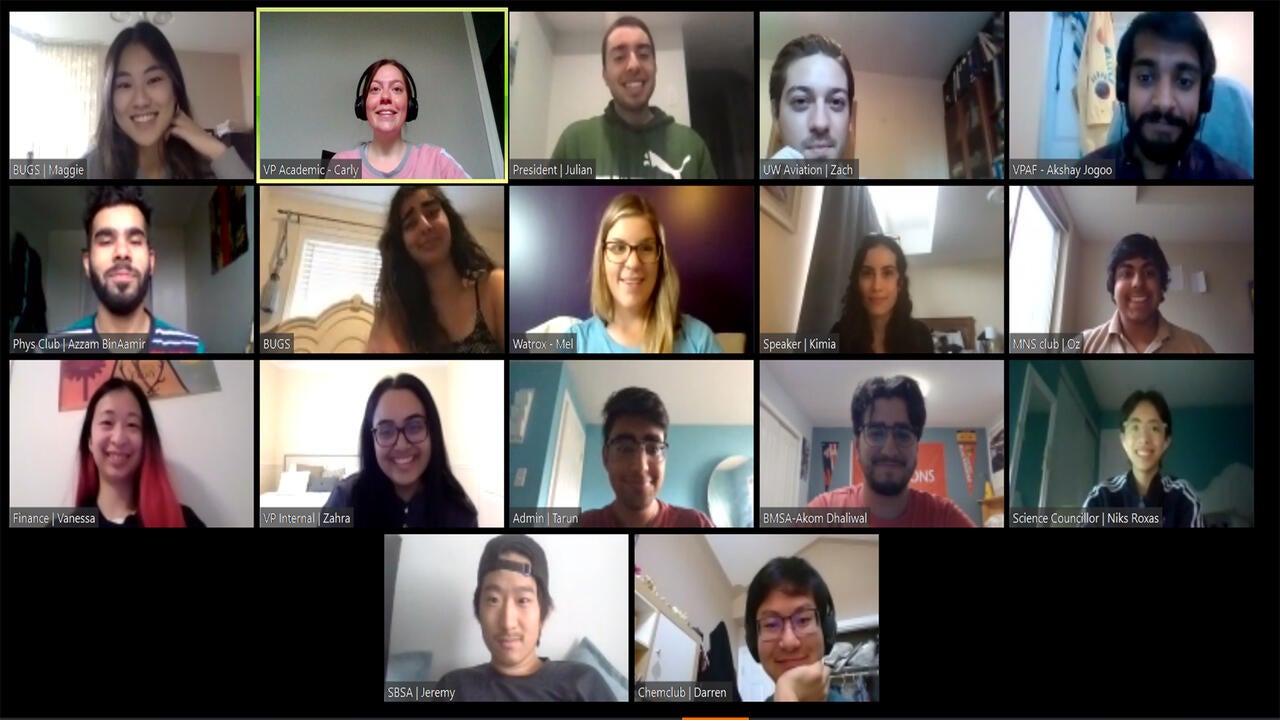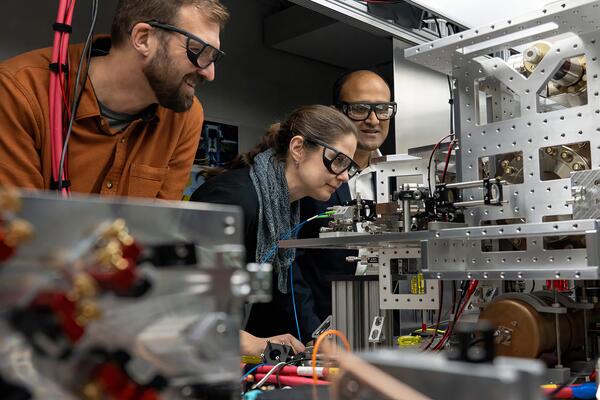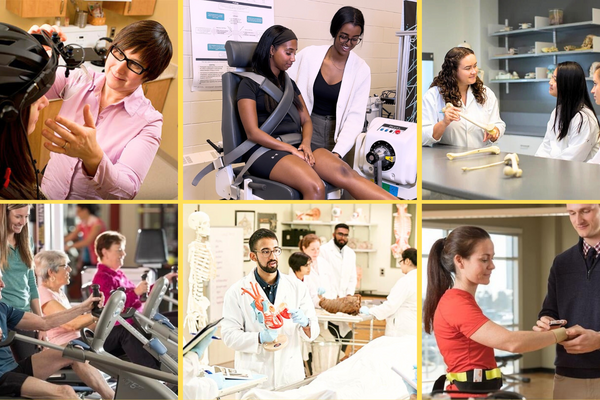
Giving back
Student Science clubs donate funds to support local community COVID-19 efforts.

Student Science clubs donate funds to support local community COVID-19 efforts.
By Katharine Tuerke Faculty of ScienceTogether, the University of Waterloo’s Science Society, Science departmental clubs and the Psychology Society donated $5,500 to help the local community fight COVID-19. The donation came from unused event funds and was shared amongst three organizations.
After the University entered a phase of delivering teaching, learning and research remotely, due to the COVID-19 pandemic, the clubs decided to donate their Spring Term event funds to Region Ready, Food Bank of Waterloo Region and Waterloo Undergraduate Student Association (WUSA) Food Bank.
“We ultimately wanted to do what was best for the students, but a refund wasn’t possible,” Carly Benson says, Science Society vice-president academic. “Helping the community fight COVID would ultimately benefit our students the most as it would allow them to return to campus safely and sooner.”
To ensure Science students were aware and in favour of the donation, the clubs advertised their intention, gathered feedback and presented the plan to the WUSA vice-president, operations and finance.
“As a Science club we understand the biology of COVID-19 and recognize its effect on the health system and community,” Benson says. “We wanted to equip hospitals and support the community to help slow the spread and flatten the curve.”
Oz Mohammed, president of the Materials and Nanosciences Club, presented the idea and formal proposal to donate unused event funds to Region Ready.
Region Ready is a joint fund to support three hospitals — St. Mary's General Hospital, Cambridge Memorial Hospital and Grand River Hospital.
Science Society and six departmental clubs — Biology Undergraduate Society, Biochemistry Student Association, Materials and Nanosciences Society, Science and Business Student Association, Physics Club and WATROX — all donated to Region Ready.
“Students staying in the area will need health-care support from the hospitals, not the University of Waterloo, so donating to Region Ready will support our students and help fight COVID-19,” Mohammed says.
The in-kind $4,500 donation provides the hospitals with the flexibility to purchase the resources necessary to combat the current COVID-19 efforts. The donation supported the purchase of N95 masks, personal protective equipment, IV drip poles and bags, beds, inhalers, etc.
Under Region Ready, the clubs were able to add criteria of how the donation could be spent as well as track the use of the funds to combat COVID-19 in the region’s hospitals.
“It is essential during these trying times to support the local community which has supported, shaped and affected University of Waterloo students,” Mohammed says. “Despite most students leaving town to return home, we wanted to take care of the area that has given us so much.”
The Chemistry Club and the Psychology Society (a non-voting board member) both donated to food banks to do their part in the local fight against COVID-19.
The Chemistry Club donated $500 to The Food Bank of Waterloo Region, where the funding was used to purchase common high-needed food items, including canned fruit, beans, hot and cold cereal, dry beans, rice, canned vegetables and other non-perishable items. The donation also helps to replace food donations and income lost due to the cancellation of regular food drives and fundraising events.
The Psychology Society, a member of the Science Society Board of Directors, gave $500 to the campus food bank - WUSA Food Support Service. The WUSA Food Bank directly serves Waterloo students and is a division of the larger Food Bank of Waterloo Region organization.
For every dollar donated, three healthy meals can be provided for vulnerable individuals. The combined $1,000 donation from the Chemistry Club and Psychology Society will create 3,000 healthy meals.
In addition to the donation to Region Ready and the Food Bank, each club is figuring out how to support students remotely. The Materials and Nanosciences Club has created a series of resource documents to help students apply for funding, find academic resources, supplementary support material for courses and even playlists of lectures. Also, they’ve created online social spaces for students to connect, interact and ask questions. Currently, they’re working on forming study spaces for students.

Read more
And a new model for how quantum research is shared — opening doors for the next generation of scientists and entrepreneurs

Read more
From optometry and pharmacy to public health and therapeutics, Waterloo alumni are powering Canada’s health care sector

Read more
Here are the people and events behind some of this year’s most compelling Waterloo stories
The University of Waterloo acknowledges that much of our work takes place on the traditional territory of the Neutral, Anishinaabeg, and Haudenosaunee peoples. Our main campus is situated on the Haldimand Tract, the land granted to the Six Nations that includes six miles on each side of the Grand River. Our active work toward reconciliation takes place across our campuses through research, learning, teaching, and community building, and is co-ordinated within the Office of Indigenous Relations.